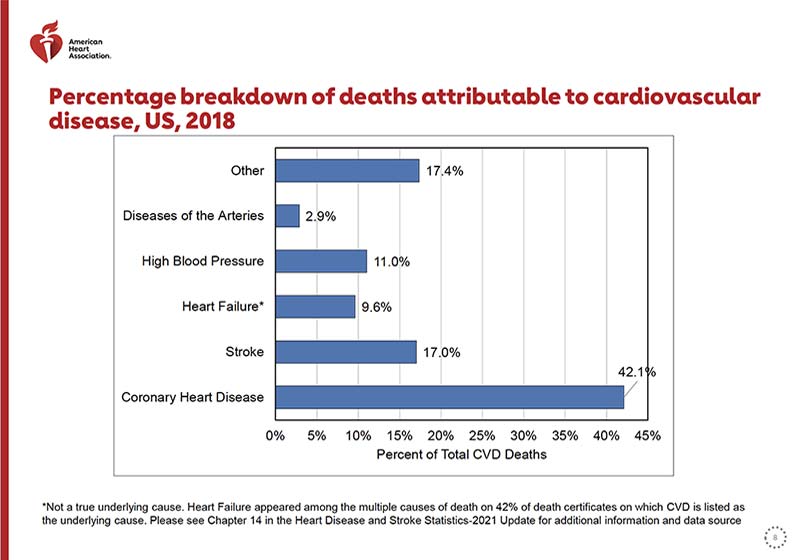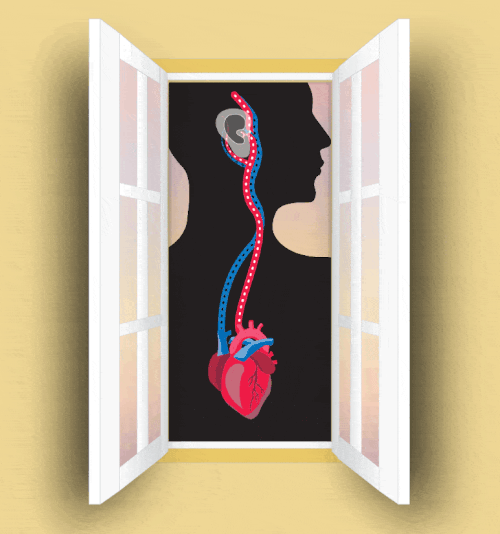With approximately 655,000 people dying annually of heart disease in the U.S., 1 person every 36 seconds and an estimated 18 million globally, concerning trends are apparent. In response, there are healthy steps we should each proactively take. The American Heart Association suggests essential lifestyle habits those with this prevalent disease can adopt to prevent or delay it, including keeping a healthy weight, frequent physical activity, blood pressure control, nutritious diet, cholesterol checks, diabetes management and not smoking.
For your information, the percentage breakdown of deaths attributable to cardiovascular disease, US, 2018:

When studying vital body systems, research indicates your inner ear’s sensitivity to blood flow, as well as vessel trauma, may enable hearing loss to be an early indicator of and screening test for heart problems. While most realize circulatory issues may affect heart health, it is also useful to understand they can degrade hearing function. With the cardiovascular/circulatory system responsible for blood flows, head to toe, from our heart via an extensive network of arteries and veins, Did You Know… your ears can be a “window to your heart?”

Research suggests some types of hearing loss, such as low-frequency, should be considered risk factors systemically associated with heart disease and strokes. As a landmark study indicated: “A significant association was found between low-frequency hearing loss and cardiovascular disease and risk factors. Low-frequency hearing loss would thus represent a potential predictor of impending cardiovascular events or underlying disease. We suggest that clinicians may use the audiogram as a sensitive and reproducible screen for cardiovascular compromise.” 1
While studies show good blood flow circulation is necessary for healthy hearing, the lack of it can damage delicate hair cells in our cochlea, which translates noises in our ear into electrical impulses our brain can recognize as everyday sounds. Evidently, healthy blood flow can positively influence hearing, while certain types of hearing loss may forewarn cardiovascular issues.
With all the daily challenges associated with having heart disease or taking care of someone who does, the ability to communicate effectively is crucial. In addition, those who don’t hear well may become more socially isolated in stressful ways that are not heart healthy.
Do you have heart disease or a family history which presents risks? Please see us for periodic evaluations to accurately assess your type and degree of hearing loss. In close coordination with your other healthcare providers, we will suggest healthy options to improve your quality of life and heighten awareness of hearing related cardiovascular risk factors. Ear to Heart, Live Smart.
________________________
1 Friedland DR, Cederberg C, Tarima S. Audiometric pattern as a predictor of cardiovascular status: development of a model for assessment of risk. Laryngoscope. 2009;119(3):473-86.



